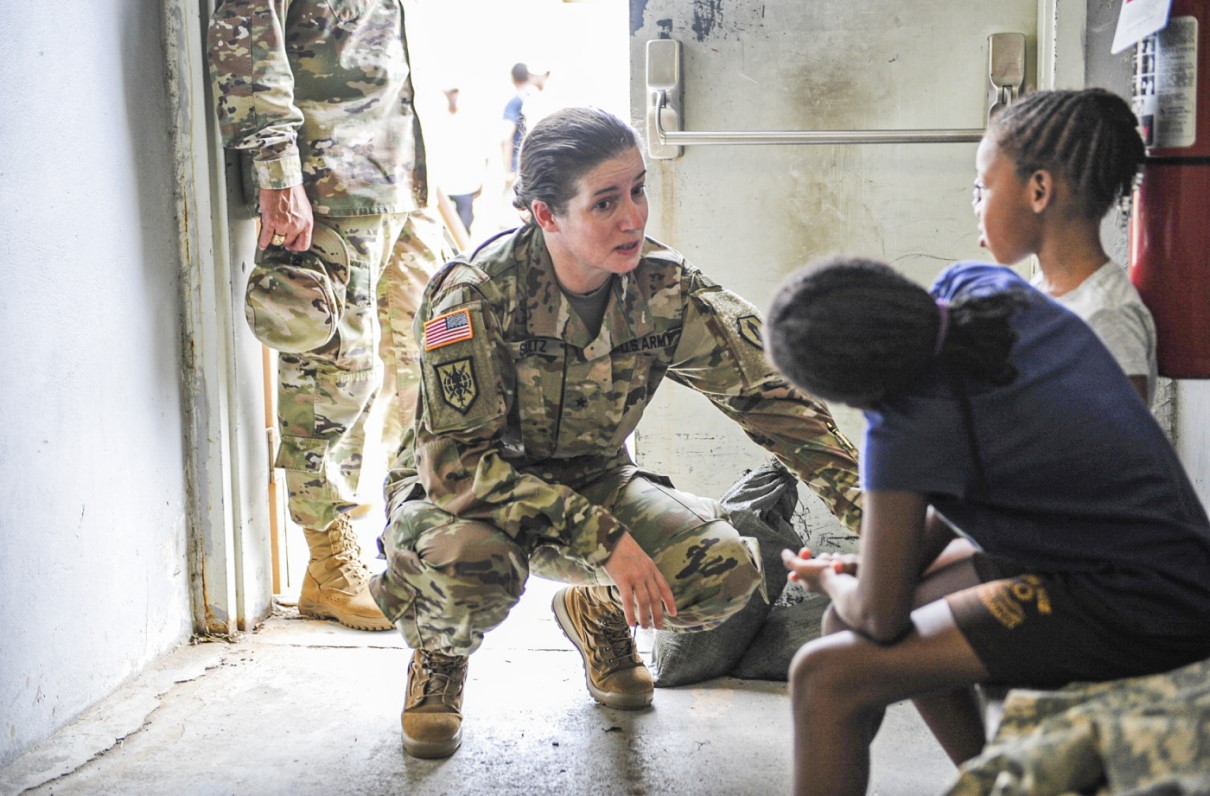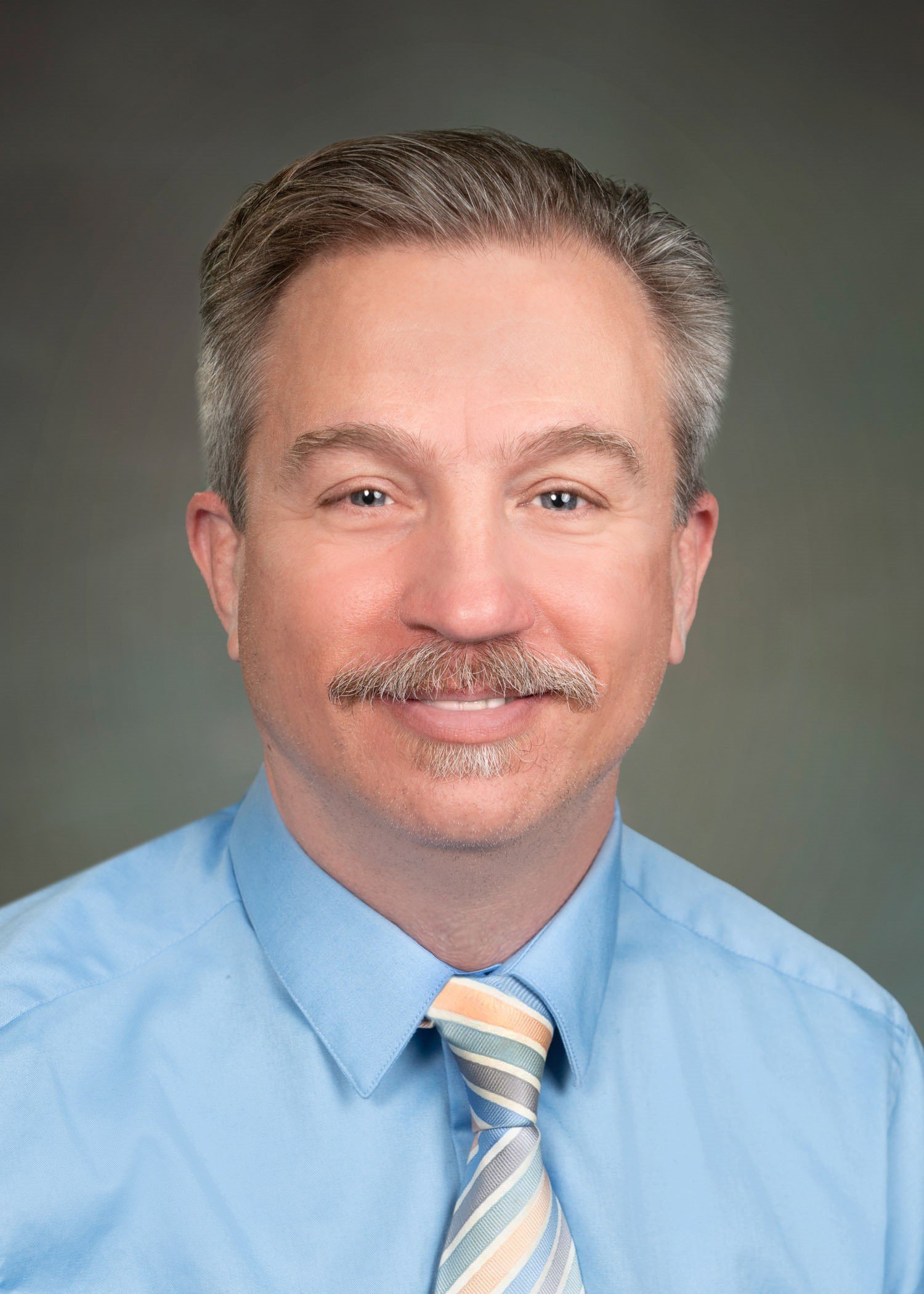(This article originally appeared in the March 2023 issue of Military Officer, a magazine available to all MOAA Premium and Life members. Learn more about the magazine here; learn more about joining MOAA here.)
Maj. Gen. Dustin Shultz, U.S. Army Strategic Operations director, has come a long way from her days on a small family farm in Northern California.
Motherless since she was 13 years old, Shultz attended a diverse boarding school and spent a year overseas in Spain before persuading her father to let her attend New Mexico Military Institute in 1989. What followed has been a 34-year career that includes stints as the deputy chief of staff at the Office of the Chief of the Army Reserve and commander of the 1st Mission Support Command in Puerto Rico during Hurricane Maria.
Military Officer sat down with Shultz to discuss a variety of topics, including her mission at the Pentagon and how she has used her fluency in Spanish to build bridges with leaders around the globe. This interview has been edited for length and clarity.
Q. Why did you join the Army?
A. I happened to come across a manual to one of the academies, and I got very intrigued, and I found out I could serve my country and could have a physical and mental challenge. I could also be part of something bigger than myself.
So, I applied, and when I was in that process, my father looked at me and said, “Sweetheart, why don’t you just marry an officer?” Today, [that question would be] outlandish. ... But back then, he was really trying to express concern for me. I was still unsure, so I ended up going a different route [military junior college], which gave me greater flexibility.
Q. What qualities make a good leader?
A. I have to circle back to the Army values. I believe that determination, hard work, [and] grit are definitely a sign [of a good leader] and somebody that wants to seek truth. I think [that’s true] in today’s Army, and I’d like to think that it goes with who I am. I also want to hear opinions that are not my own.
I understand the Army has processes and policies, but we want to hear thoughts because we want growth leaders and innovators. Innovation means we sit around a table; we look at things in different ways. … We want our leaders to be visionaries. That inspires me and gets me really excited.
[MOAA INTERVIEW: Coast Guard Commandant Charts the Path Forward]
Q. What is the Western Hemisphere Institute for Security Cooperation, and why did you attend?
A. As a young major, you have the opportunity to go in front of a board and be considered for your Command and General Staff College. They had something called the Western Hemisphere Institute for Security Cooperation. I looked it up and realized it was the same curriculum they had at [Fort] Leavenworth [Kan.], but it was all in Spanish and half the class was from Latin America. … I wanted the opportunity to get to know fellow leaders from other countries, to influence them on who we are as an Army and as a nation.
Q. What did you take away from your experience in Puerto Rico in the aftermath of Hurricane Maria?
A. I really learned there that Spanish was the language of my soul. Because when you’re really hurting, you’re having a good day, [or] you’re having a bad day, being able to be fluent in the Spanish language … allows me to express so much more.
In Puerto Rico, all my soldiers were bilingual, and they were brilliant at what they did. They would always find a way. They were ingenious. … Most of my soldiers did not get full power on in their homes until six to 12 months after the hurricane. ... It was tough, and it was hard, but you would never know it.
[MOAA INTERVIEW: Navy Secretary Carlos Del Toro on Establishing Excellence]
Q. When you were heading up the 373rd Expeditionary Military Intelligence Battalion, they were awarded the Meritorious Unit Commendation, the Reserve Officer’s Association Large Unit of the Year Award, and a distribution of the Masteller Trust Fund. Can you tell me about your time leading this award-winning outfit?
A. The 373rd Intelligence Battalion was a phenomenal organization. They were able to find more enemy weapon caches [in Iraq] than many of the other [military intelligence] formations before them. … It was made of 281 soldiers from 36 different states, so we had a lot of cross levels into that formation. They deployed, and they did it with honor.
They were a pride and joy of mine because what I saw in that [situation] is that you can bring people together that were professionals and didn’t have to train years upon years together. … I needed them to live the Army values, and they constantly impressed me.
Q. What is the mission of U.S. Army Strategic Operations?
A. It used to be in our industrial age model that you had to do one to do two, and two to do three, and three to do four. [We now have] concurrent operations and planning and engagement in a technological age where we have computer systems, we have AI, we have data that can help us drive to better solutions and better thoughts. … We are operationalizing the Army data plan, the unified network. … We are making data-driven decisions that are allowing us to pause and see from the big picture to the last penny in your account. We are actually able to analyze better because we can see that holistically.
We are not completely there yet, but that is why my office exists.
Q. What advice would you give to someone thinking of becoming an officer?
A. Do it because it’s your passion to serve [and] your passion to be part of something bigger than yourself.
Selfless service is real. A lot of people come in and say, “How do you become a general officer?” You become a general officer by not seeking to become a general officer.
Military Officer Magazine
Discover more interesting stories in MOAA's award-winning magazine.

